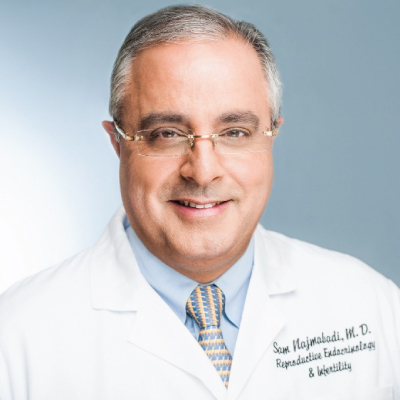Infertility

Infertility is a problem that affects many couples all over the world. After one year of regular, unprotected intercourse, it is described as the inability to produce a child. A multitude of causes can contribute to infertility, including ovulation difficulties, hormone imbalances, and anatomical abnormalities. In this article, we will go over the fundamentals of infertility, such as its origins, diagnosis, and treatment choices.
While considering infertility, it is critical to comprehend the notions of sterility and fertility. Fertility is the capacity to have a child, whereas sterility is the inability to conceive. Infertility sits halfway in the middle, since it refers to the difficulty or inability to conceive a child after trying for a year or longer.
Infertility affects both men and women, however the causes and treatments may differ. In certain circumstances, infertility is caused by a combination of conditions in both couples. Human infertility is a complicated condition that needs a complete assessment by a healthcare physician or fertility expert.
Ovulation disorders are a common cause of infertility in women. Several conditions can hinder the ovary from releasing a mature egg, which is required for pregnancy. Polycystic ovary syndrome (PCOS), premature ovarian failure, and thyroid abnormalities are all examples of common ovulation issues. Ovulation disorders can be treated with medicine to encourage ovulation, lifestyle modifications, or assisted reproductive technologies (ART) such as in vitro fertilization (IVF).

How long should couples try to get pregnant before seeing a doctor?
Beyond the age of 30, a woman’s chances of having a baby decline substantially. Most experts agree that women under the age of 35 who have no obvious health or reproductive issues and normal menstrual cycles should try to conceive for at least a year before consulting a doctor. Couples should contact a health care professional after 6 months of failed attempts for women aged 35 and older. Ladies over the age of 40 may want to seek more quick examination and therapy. Certain medical conditions can raise the chance of infertility. Couples who have any of the following indications or symptoms while attempting to conceive should consult their doctor right away:
In women:
- Irregular or no menstrual cycles
- Endometriosis
- A background of pelvic inflammatory illness
- Uterine or tubal illness, known or suspected
- A history of several miscarriages
- Conditions that are inherited or acquired that contribute to decreased ovarian reserve (chemotherapy, radiation)
In males:
- A history of testicular trauma
- Hernia surgery in the past
- Chemotherapy was formerly used.
- An infertile history with another partner
- Sexual impotence
Depending on the underlying cause, treatment options for infertility may include lifestyle modifications, medicine, or assisted reproductive technology (ART). Fertility drugs to induce ovulation, intrauterine insemination (IUI), and in vitro fertilization are examples of therapy possibilities (IVF). Surgery to rectify anatomical abnormalities, hormone therapy to address hormonal imbalances, and lifestyle modifications such as weight loss and smoking cessation may also be used. The individual’s medical history, age, and overall health will all influence the treatment regimen. To identify the best course of action, consult with a healthcare
Treatments for infertility
Surrogacy
Surrogacy is the process by which a woman carries and delivers a child for another person or couple who are unable to conceive or carry a pregnancy. Traditional surrogacy, in which the surrogate is also the biological mother of the child, and gestational surrogacy, in which the surrogate carries a fertilized embryo that is not genetically related to her, are the two main types of surrogacy. Surrogacy is a complicated process that involves legal, ethical, and medical considerations, and it is frequently used as a last resort for infertile couples or same-sex couples who want biological children.
IVF
IVF is an abbreviation for in vitro fertilization, a type of assisted reproductive technology used to assist couples in conceiving a child. During IVF, a woman’s eggs are extracted and fertilized in a laboratory dish with sperm, resulting in embryos. The embryos are then implanted in the woman’s uterus, where they may result in a successful pregnancy. Infertility caused by a variety of factors, such as blocked fallopian tubes, male infertility, or ovulation disorders, is frequently treated with IVF. It could also be used if other fertility treatments have failed. While IVF is generally thought to be safe, it can be an expensive and emotionally draining process, and it may not work for everyone.
Why the United States?
The United States is a popular destination for surrogacy and IVF procedures for a variety of reasons, including the following:
Legal framework: Surrogacy and IVF procedures in the United States are governed by a well-established legal framework that varies by state. This framework provides clear guidelines for both intended parents and surrogates, simplifying and transparent the process.
Advanced medical technology: The United States has some of the most advanced medical technology in the world, and many of the most prestigious clinics and hospitals provide cutting-edge facilities and equipment for surrogacy and IVF procedures. This can boost the chances of success for couples who use these techniques.
Experienced medical professionals: There is a large pool of experienced medical professionals in the United States who specialize in reproductive medicine and are trained to perform complex procedures such as IVF and surrogacy. This knowledge can aid in ensuring that the procedures are carried out safely and effectively.
Cultural acceptance: Surrogacy and IVF are widely accepted and supported in the United States, with many couples and individuals using these treatments to start families. This cultural acceptance can help intended parents navigate the process and find the help they require.
MediPocket surrogacy and IVF ensures that every intended parent can experience parenthood with the best fertility experts from the United States. Reach out to us and begin your journey with a bundle of joy in your arms.




100+ Top USA Fertility Experts

Dr. Sam Najmabadi
- Experiance : 25+ Years
- Specialist : Infertility
- Address : Beverly Hills, USA

Dr. Linnea I. Chap
- Experiance : 23+ Years
- Specialist : Oncology
- Address : Beverly Hills, USA
[wpforms id=”18712″]
[wpforms id=”18712″]










